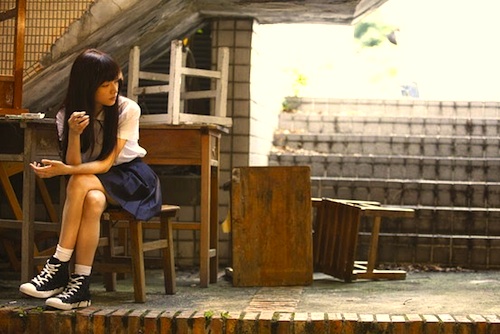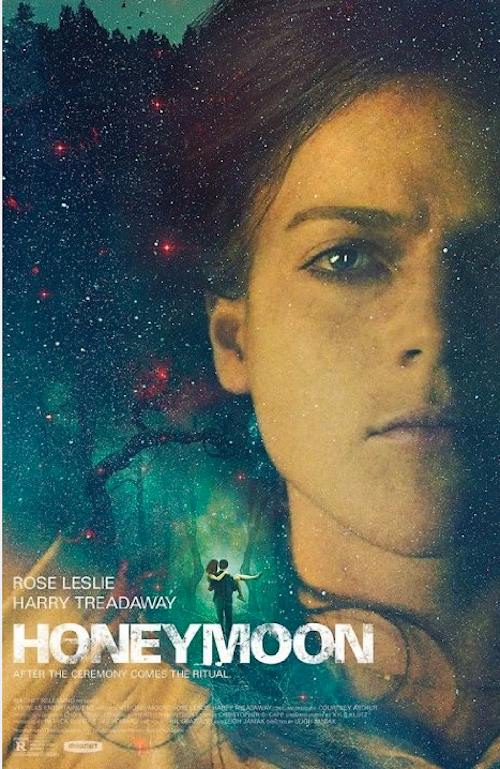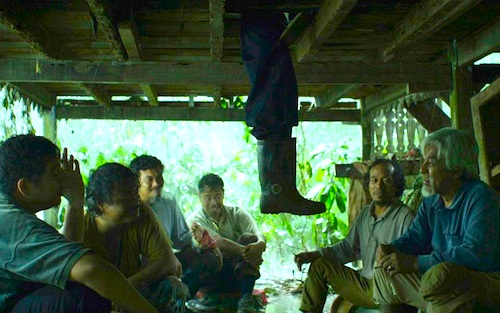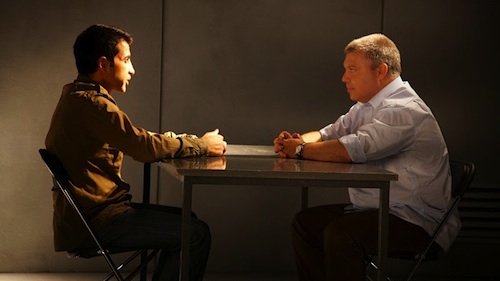By Joe Bendel. It is one of South Korea’s leading tourist destinations, famous for its Silla-era royal tombs and Buddhist temples. Of course, people live there all year round, going about their business in the shadow of the past. Carrying on with life poses its own quiet challenges for a visiting academic and a local teahouse owner in Zhang Lu’s Gyeongju, which screens during the 2014 Toronto International Film Festival.
Choi Hyeon has almost become more Chinese than Korean. For many years the socially awkward expat has taught regional political science at Beijing University. He is fluent in Chinese and married a Chinese woman. In fact, employees of the visitors’ center just assume he is Chinese. After a long absence, he returned for the funeral of an old friend. In the mood for reflection, he subsequently takes a side-trip to Gyeongju hoping to find a particular teahouse that looms large in his memory. He duly finds the establishment, now run by Gong Yun-hui, but she has papered over the obscene folk painting he remembers so well (for obvious reasons).
Initially, Gong assumes Choi is some sort of pervert, given his unhealthy fascination with the painting, but she will change her opinion over time. Choi will return to the one spot in town where he feels somewhat relaxed after a failed attempt to reconnect with an old flame. As he lingers in Gong’s company, we start to see they are somewhat kindred spirits. However, her friends will not take to him, particularly the police detective who has long carried a torch for Gong.
Gyeongju is an exquisitely sad, deeply felt film that has much to reveal about its characters. Steadily and almost stealthily Zhang peels back their protective layers, as their conversation becomes less guarded. Yet, unlike the Linklater “Before” trilogy (which some have compared it with), you really cannot say Gyeongju is a talky film, because of its eloquent silences.
Indeed, you will be hard pressed to find anyone who can say more with so few words as Shin Min-a. As Gong (or the Goddess of Gyeongju as her dedicated friends call her), she is truly radiant. When she slowly divulges her painful history, it is absolutely devastating. In contrast, Park Hae-il deliberately looks genuinely ill at ease with himself and others. Yet, the chemistry he develops with Shin is subtle, but very real.

Aside from the Tumuli Park Belt tombs, Zhang (the former documentarian) does not fully exploit Gyeongju’s historic attractions. Nevertheless, the film has a tactile sense of place. You can practically smell the mustiness after a late afternoon rain and feel the late night breeze as Gong, Choi, and the detective drunkenly clamber up one of the tombs.
Throughout the film, Zhang masterfully commands the mood and tone, but he nearly sabotages himself when we hear of the potential tragic end of two tangential characters met in passing. Wondering if they are really the ones who met such a fate temporarily distracts from the bittersweet business at hand. Nevertheless, Shin and Park quickly bail him out with their smart, mature work. Unusually (and refreshingly) chaste for a ships-in-the-night film, Gyeongju is loaded with understated power and resonance. Highly recommended, it screens again tomorrow morning (9/11) and this coming Sunday (9/14), as part of this year’s TIFF.
LFM GRADE: A
Posted on September 10th, 2014 at 10:36pm.




